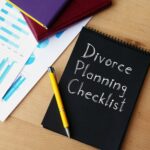Guide To Safe Disposable Diapers
Parasol’s co-founder, Jessica Hung, encourages new parents to know about the ingredients in baby products. Being a mother of two, she believes that awareness about what to look for and which chemicals to avoid can help them make an informed decision about purchasing any new baby product for their newborn. With the highest quality materials and engineering technologies from Korea, Japan, Europe, Israel, and the U.S., Parasol has produced safe disposable diapers and wipes focused on the well-being of babies and their families. Their unique diaper design with RashShield® protection is the product of its co-founder’s relentless research, ambition for excellence, and entrepreneurial pursuit of a softer rash-free diaper that is more absorbent than anything available in the market.
There are various diapers on the market right now, and many are made using harsh chemicals that can cause skin irritation. Caring about the environment is usually a tertiary concern for commercial product manufacturers; thus, there are very few eco-friendly diaper brands for babies. Parasol’s mission is to provide the best non-toxic diapers for your babies and manufacture them with the most negligible environmental impact.
Considering the sheer volume of diapers being disposed of by the world every year, you would think that all manufacturers would worry about the plastic left behind at the dumping grounds or the synthetic chemicals that seep into the soil and water bodies. Still, unfortunately, that’s not the case. Since 2014, Parasol has been engineering their products to make a difference in this industry. In case you are still on the fence, recyclable wipes and diapers made with non-toxic ingredients are the future.
This article looks at specific guidelines that soon-to-be parents and first-time parents should follow when faced with the dilemma of which baby products to buy for their newborn.
Which disposables are safe?
The biggest concern for most babies wearing disposable diapers is diaper rash.
Disposable diapers that are considered safe for babies are ideally free of certain chemicals that are known to cause some damage or the other. Let’s talk about the chemicals or ingredients you, as a parent, should keep an eye out for when reading product labels at the store.
- Phthalates
They are a family of industrial chemicals used for softening and smoothening polyvinyl chloride (PVC), and increasing its durability. Manufacturing plastic components of diapers, glues, dyes, and synthetic fragrance involve the use of phthalates. Interestingly, most established diaper brands in the market that claim to be non-toxic and eco-friendly barely mention the phthalate content in their products, and for a good reason. Phthalates act as solvents for many cosmetics and personal care products we use daily. Soaps and shampoos for adults have them too.
However, a baby’s susceptible skin doesn’t react well to phthalates, so “phthalate-free” products are considered safe for your newborn. Prolonged exposure is said to cause damage to the liver, lungs, kidneys, and reproductive system. These chemicals can even affect people’s hormones. Why would you want to purchase something toxic like that for your baby to wear around their privates all day? No way!
- Parabens
These are carcinogenic chemical preservatives that are used to keep baby products fresh and bacteria-free for long periods. Many product labels appear as methylparaben, butylparaben, and propylparaben. Avoid them if you can.
- Allergens and irritants
Sulfates, used as preservatives, have been known to cause allergic reactions causing dermatitis and anaphylactic reactions in some instances.
Allergens like tributyltin (TBT) and latex are commonly found in diapers. Regular baby lotions and fragrances may have them too. Looking for products that explicitly state they are free of TBT, latex or parabens is the safer way to go about it.
Synthetic fragrances are toxic too. Avoiding chlorine, dyes, and alcohol in baby products is also vital. Look out for TCF or Total Chlorine Free on labels. Since babies have susceptible skin, consulting a pediatrician is always encouraged to avoid future allergies that might result from specific genetic dispositions. Skin sensitivity causes rashes and allergic reactions too. Overwiping with diapers that are made with coarse fabric can irritate your baby’s skin or make them prone to allergies. The texture of the fabric plays a more significant role than the ingredients used to make them sometimes.
What are biodegradable diapers?
Diapers and wipes made with plant-based ingredients instead of petroleum-based products are considered biodegradable. Bio-based Super Absorbent Polymer (SAP) or cornstarch is used for these diapers as the absorbing material to replace or limit the use of traditional synthetic SAP. The little gel clumps that sometimes stick to your baby’s skin when the diaper hasn’t been changed for an extended period are SAP.
Some studies say that regular disposable diapers can take up to 500 years to decompose, producing 50 times more waste than cloth diapers while using twice the amount of water and thrice the amount of energy. It turns out that what’s safe for the baby is also safe for the environment. The choice is clear.
If your baby is prone to rashes or there is a history of eczema in your family, cotton is the most opted choice by parents worldwide. Chances of contracting severe dermatitis are low in cotton diapers because of their breathability and absorbent quality. Sweat and urine get soaked by the fabric leaving the skin dry and free of moisture for long periods.
Conclusion
Parasol’s long-term vision provides the best product for your baby’s skin without hurting the environment. Even though it means encouraging competition, they wish other brands would contemplate the impact their products yield on the environment and move towards eco-friendly solutions. The journey starts with the first piece of clothing you choose for your kids.







